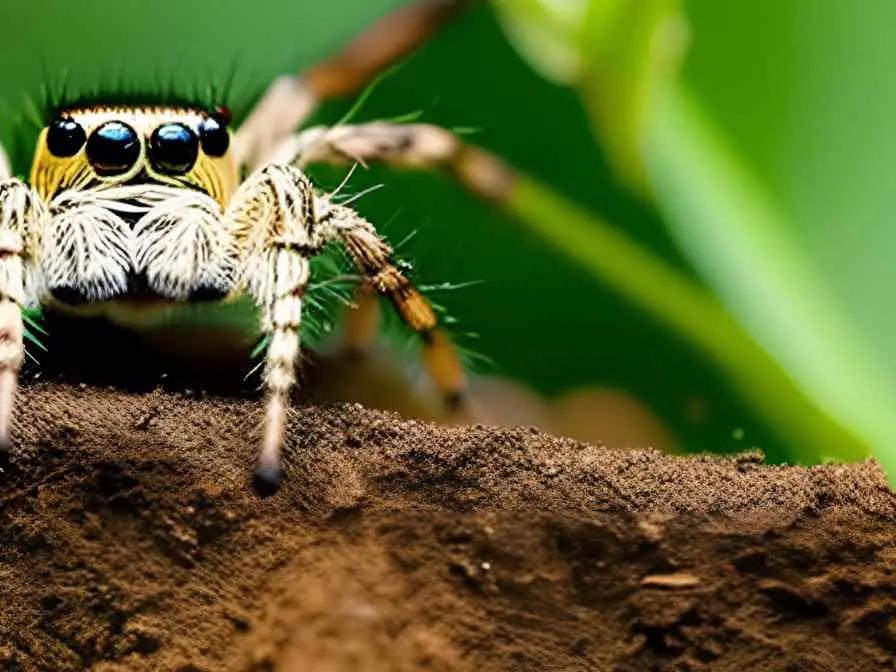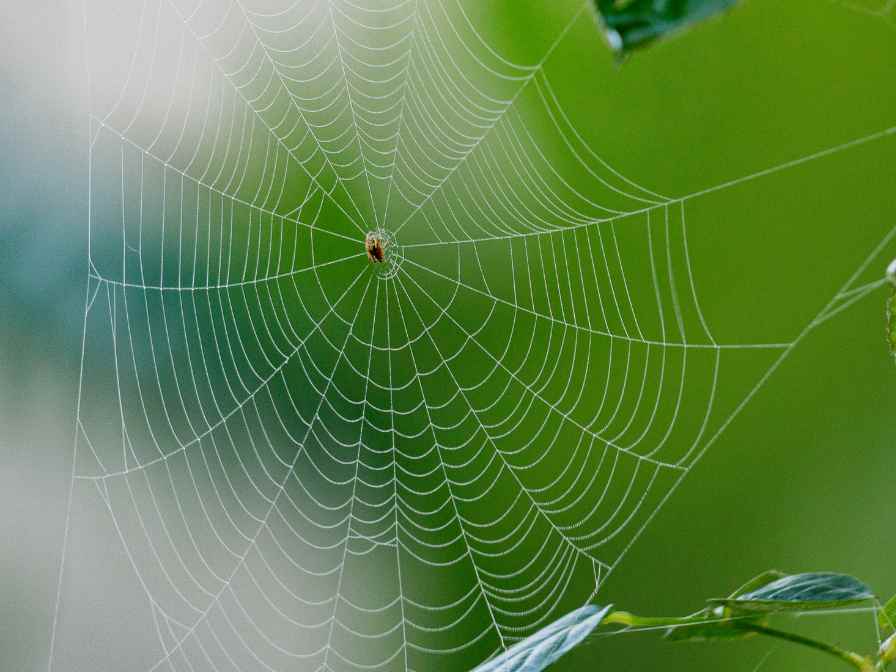When preparing the soil for the plantation in the garden or in the pots, people do look for soil health. Because it is important. Sometimes people come across spider eggs. Because they have the potential to produce spider mites, which are quite harmful. So, we are going to tell you if you have spider eggs in the soil then what to do?

Spider Eggs in the Plant Soil
Finding spider eggs in the plant soil can be a sign of a potential spider infestation. It’s important to take prompt action to prevent the spider eggs from hatching and spreading. It will make sure that you get your plants in the right shape and form.
To remove spider eggs from the plant soil, gently scoop them out with a small spoon or trowel and dispose of them in a sealed plastic bag or by flushing them down the toilet. It’s essential not to crush the eggs as this can release the spider lings and allow them to spread throughout your home or garden.
To prevent future spider infestations, maintain your plants well, regularly inspect them for spider webs or eggs, and take prompt action if you find any. You can also use natural pest control methods, such as neem oil or insecticidal soap, to keep spiders and other pests at bay.
By being vigilant and taking preventive measures, you can protect your plants from spider infestations and keep your home or garden free from unwanted pests. Also, taking the action at the right time will ensure that plants will not get pests like spider mites.
Symptoms of Spider Eggs in the Plant Soil
If spider eggs are present in the soil of a plant, there may not be any obvious symptoms that can be seen without a close examination. However, here are a few signs that could suggest the presence of spider eggs:
Presence of spiders
If you notice spiders crawling around the soil or on the plant, it’s possible that they have laid eggs in the soil. You can have a closer look at the soil and get the timely action to get rid of them.
Webbing

Spider egg sacs are often wrapped in webbing. If you see a lot of spider webs around the plant or in the soil, it could be a sign of spider eggs. Webs also cause problems in the growth of plants, especially vegetables.
Strange growth
Sometimes, spider eggs can affect the growth of plants. If you notice unusual growth patterns, such as stunted growth or twisted stems, it could be a sign of spider eggs. You can have a closer look at the plant growth and then take remedial actions.
Pests
Spiders feed on insects, so if there are a lot of pests around your plant, it could be a sign that spiders are present and may have laid eggs in the soil.
It’s important to note that spiders are generally beneficial to plants, as they help to control insect pests. So, the presence of spider eggs in the soil may not necessarily be a cause for concern. However, if you are worried about the health of your plant, it’s always a good idea to consult a gardening expert or a plant specialist.
Effects of Spider Eggs on the Plant Soil
Spider eggs in plant soil are generally not harmful to plants, and in fact, they may even be beneficial as spiders are natural predators of many insect pests that can harm plants. However, there are some potential negative effects of spider eggs in plant soil that should be considered:
Competition for resources
When spider eggs hatch, the spiderlings will compete with the plant for nutrients and water in the soil. If there are too many spider lings in the soil, they may deplete the soil of nutrients and water, which can harm the plant.
Overpopulation of Spiders
If the spider population in the soil becomes too large, they may start to prey on beneficial insects and other organisms that are important for soil health. This can disrupt the balance of the soil ecosystem and have negative effects on plant growth.
Unsightly appearance
Some people may find the presence of spider eggs and spiderlings in their plant soil to be unsightly, which can reduce the aesthetic appeal of the plants and the surrounding area.
Spider bites
While it is unlikely that spiders in the soil will bite humans, it is still a potential risk. If someone is bitten by a spider in the soil, they may experience pain, swelling, and other symptoms.
Spider mites and other pests
Spider mites are common pests of plants. You will find them under the leaves. These mites affect the growth and yield of the plants negatively. They can cause the color of the leaves to change. Also, they cause an increase in disease as well as attracts other pests as well.
Overall, while spider eggs in plant soil are generally not harmful to plants, it is important to monitor their population and ensure that they do not become overpopulated or disruptive to the soil ecosystem.
How to get rid of spider eggs in the Plant Soil?
If you have spider eggs in your plant soil, it’s important to address the issue promptly to prevent a potential spider infestation in your home. Here are some steps you can take to get rid of spider eggs in plant soil:
Identify the spider eggs
The first step is to identify the spider eggs in the plant soil. Spider eggs are usually small, white, round, and about the size of a pinhead. If you’re not sure if the eggs are from spiders, take a picture and do some research to confirm.
Remove the eggs
Use a spoon or small trowel to carefully remove the spider eggs from the plant soil. Be sure to dispose of them properly, as they can still hatch and become spiders if left in the soil or thrown in the garbage. In this way, you can get rid of spider eggs.
Apply Neem Oil
Neem oil is a natural insecticide and fungicide that can help prevent spider eggs from hatching and kill any spiders that may be living in the soil. Mix neem oil with water according to the manufacturer’s instructions, and apply it to the soil around your plants.
Use sticky traps
Another way to prevent spiders from infesting your plants is to use sticky traps. These traps are designed to attract and trap spiders and other insects. Place the traps around your plants to catch any spiders that may be living in the soil.
Keep your plants healthy
Finally, it’s important to keep your plants healthy to prevent spider infestations. Make sure your plants are getting the right amount of water, sunlight, and nutrients. It will keep making the immune system of the plant strong.
Spider mites, which are common spider pests, are attracted to stressed plants, so keeping your plants healthy can help prevent them from becoming a problem.
In a nutshell, spider eggs in the plant soil are a problem. You just have to check them and have a keen look at the soil. once you see the symptoms, you have to get them right at the time. You can try many tricks to get rid of the spider eggs in the soil.
FAQs
How long does it take for spider eggs to grow?
Well, if you find the eggs of spiders in the plant soil, you will surely have to get rid of them. If the eggs of spiders are present they take almost a week to develop. If you find the eggs you should try to get rid of them in the meantime for 7 days.
How do you control spider eggs?
Well, there are many methods you can try to get control of the spider eggs in the plant soil. you can simply remove the eggs, use the neem oil, or use any other pesticide. But the important is that you control the spider eggs in the plant soil on time.
How many times do spiders lay eggs?
To say simply, spiders lay eggs the whole of the year. If you find spider eggs in your plant soil, make sure you get rid of them as soon as possible. It is because they have the potential to increase at a good pace.

